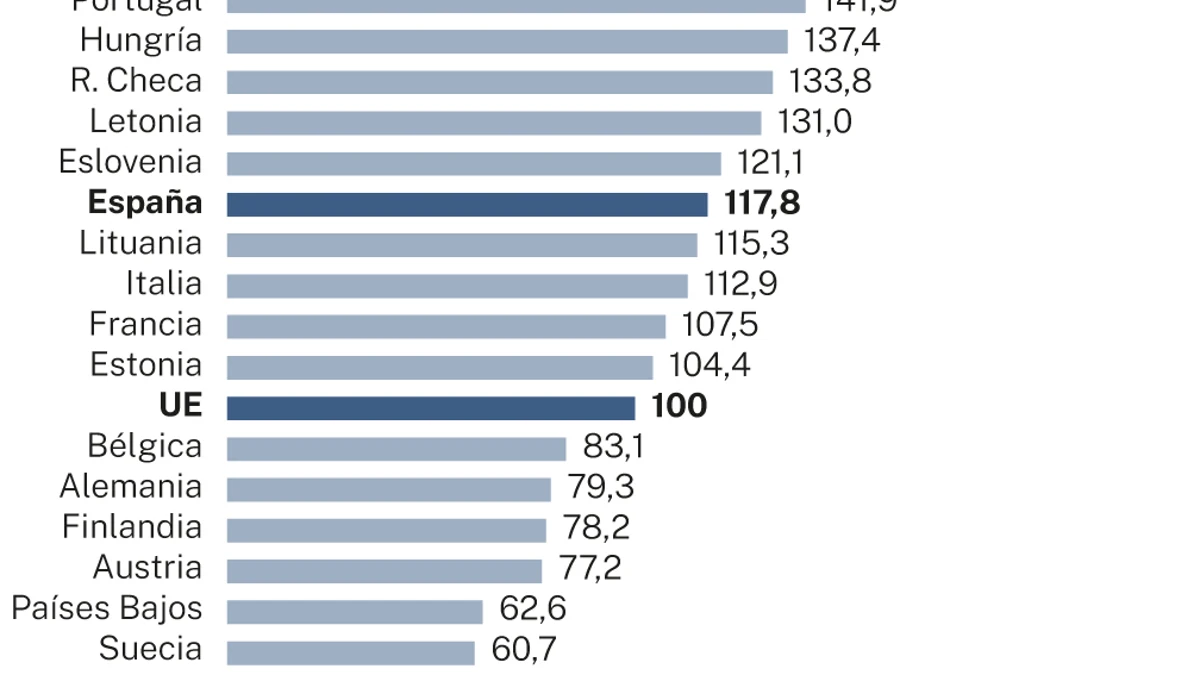In a Pew Foundation opinion survey report in September of 2022, it was found that only 46 percent of Democrats had a “positive” view of capitalism, down from 55 percent in 2019. On the other hand, 74 percent of Republicans said they were positive on capitalism, which was a decrease from 78 percent in 2019. At the same time, of all those surveyed, only 23 percent strongly said that people have equal opportunities to be successful under socialism, compared to 36 percent who strongly say that opportunities for success are more likely under capitalism. Notice that large majorities think that opportunities for success do not exist under either system.
More men than women have a positive view of socialism (38 percent for women, 35 percent for men) than of capitalism (48 percent for women, 68 percent for men). Among age groups, 44 percent of those between 18 and 29 have a more positive view of socialism (44 percent) than of capitalism (40 percent). Only in the age groups above 50 do majorities hold positive views of capitalism (50-64 years old, 62 percent; 65 and older, 73 percent).
Washington Post columnist Heather Long recently drew attention to some of these numbers, especially, among those under 30 years old, because she thinks businessmen have to do better to make young workers and employees feel less alienated and discouraged about their futures. Growing up during, first, the financial and housing crisis of 2008-2009 and then the Covid crisis of 2020-2022, young people feel insecure about their financial and employment futures. They are also more uncertain about their health care and retirement situations looking to the years ahead.
Ms. Long gives few proposals for how private businesses are to overcome this negative and pessimistic state of mind, other than that the private sector and government should shore up the Social Security system, to reduce unease among the new generation of workers about their retirement future, which, she says, has been America’s “most successful policy to keep people out of poverty.”
The fundamental problem, Ms. Long says, is that young people are having to make more of their own decisions and provisions about old-age planning, health and medical-care decisions, educational choices, and job securities. In other words, those in what she calls “the unluckiest generation” have to take more responsibility for their own lives. It’s scary when you fear that paternalistic government and the welfare state are letting you down.
To understand these negative views and pessimistic attitudes, we have to first ask, what do these young people think “capitalism” means? That is something not asked in the Pew Foundation survey. But most likely, those in that 18 to 29 age category probably think that what we have in America today is capitalism. For the classical liberal or libertarian, what we have in America today is not what has historically been meant by capitalism or, better expressed, a competitive free-market economy.
The free-market system is one based on individual liberty, private property, free enterprise, impartial rule of law, and constitutionally limited government. Economic liberty means the right of individuals to freely exchange and associate with whomever they desire for peaceful purposes at mutually agreed upon terms of trade. In free, competitive markets, entrepreneurial producers and suppliers only earn profits if they successfully offer what consumers (meaning all of us interested in purchasing desired goods and services) are willing to buy. Those entrepreneurs and private enterprisers must constantly try to market new, better, and less expensive goods and services if they are to stay ahead of — or at least even with — their supply-side rivals, so as to avoid losses.
Those entrepreneurs and private enterprisers also compete against each other for the purchase and hire of resources, capital, and workers, whose complementary services enable the manufacture of the wares those employers are attempting to produce, guided by what they think (and hope) consumers will be interesting in buying at prices sufficient, at least, to cover the expenses to bring those goods to market.
There are inescapable uncertainties in all of this. Consumers may change their minds as to what goods and services they are interested in buying and with what qualities, features, and characteristics. The competitive market process always is changing and improving what is being produced, where it is being produced, how it is being produced, and with what combination of resources, capital, and labor, precisely in that constant drive for each businessman to do better than his rivals. It is this competitive “churning” that is, day-in and day-out, in big and small ways, constantly bringing about improvements in the standards and qualities of living that represent betterment in the human condition.
Are there still important aspects of this competitive market system in the United States? Of course there are. But overlaying it are ever increasing networks of government interventions, regulations, restrictions, prohibitions, and compulsory redistributions that distort and twist what remains of a truly capitalist system in America.
With all these government intrusions into the market come special favors and privileges, anti-competitive practices, protections, and subsidies that benefit some at the expense of others due to the interaction of government officials and politicians on the one hand and those in the private sector wanting to escape from competition through interventionist “shelters” that guarantee them “safe spaces” from the normal competitive forces of a real free enterprise system.
It is estimated that there are well over 10,000 registered lobbyists in Washington, D.C., spending, possibly, well more than $10 billion a year trying to influence the direction of congressional legislation of one type or another to benefit some special individual, group, or association of enterprises wanting a part of the estimated $6.5 trillion of federal expenditures in fiscal year 2024. This is not a limited government, free-market economic system or society. It is the interventionist-welfare state.
According to Open Secrets, a website that tracks lobbying activities in the U.S. and especially in the nation’s capital, among the biggest spenders trying to use the federal government for their own special interest purposes are:
Health/Medical Industry ($745.396 million)
Finance/Insurance/Real Estate ($596.734 million)
Communications/Electronics ($574.256 million)
Energy/Natural Resources ($395.497 million)
Ideology/Single Issue Groups ($200.675 million)
Agribusiness Groups ($177.251 million)
Defense Contractors ($136.845 million)
Construction Associations ($64.081 million)
Labor Union Associations ($53.067 million)
Lawyers/Lobbyists ($19.008 million)
In 1932, just before Weimar Republic in Germany became the Nazi Third Reich in 1933, the Austrian economist Ludwig von Mises explained the nature and corruption of interventionism in the German economy of that time:
“In the interventionist state it is no longer of crucial importance for the success of an enterprise that the business should be managed in a way that it satisfies the demands of consumers in the best and least costly manner. It is far more important that one has ‘good relations’ with the political authorities so that the interventions work to the advantage and not the disadvantage of the enterprise….
So, the leadership positions within enterprises are no longer achieved by men who understand how to organize companies and to direct production in the way the market situation demands, but by men who are well thought of “above” and “below,” men who understand how to get along with the press and all the political parties, especially with the radicals, so that they and their company give no offense. It is that class of general directors that negotiate far more with state functionaries and party leaders than with those from whom they buy and to whom they sell….
Since it is a question of obtaining political favors for these enterprises, the directors must repay the politicians with favors. In recent years, there have been relatively few large enterprises that have not had to spend very considerable sums … [on] campaign contributions, public welfare organizations and the like.… The crisis from which the world is suffering today [1932] is the crisis of interventionism and of national and municipal socialism, in short, it is the crisis of anti-capitalist policies.”
Is this not what America increasingly seems to be? It this not the politicized market that most people have to work and live in? Is this not the society of closed employment doors due to higher and higher minimum-wage laws, along with restrictions and regulations that make it difficult to start or expand a small or medium-size business. Is this not a system in which it is difficult to have enough actual or prospective revenues after taxes and hiring rules to afford to employ more people at real market wages? Is this not a manipulated market in which the directions of investment and production are far too determined by where the government “nudges” it to go, rather than being fully guided by consumer demand in a truly free market?
It is not surprising that many among the young turn against “capitalism,” if this is what they think a free-market system is all about. It is a highly and increasingly rigged system of favoritism, privilege, protection, subsidy, and anti-competitiveness in which “the big boys” with the “connections” and the money to spend try to use the system and the trillions taxed and borrowed by the government for their anti-market benefit at the expense of others in society.
If young people worry and wonder about their retirement future, their health care, and medical needs, their chance to afford a place to live, and a reasonable possibility for their lives to be better and more prosperous than their parents, it is precisely because government over the decades has either taken over or heavy- handedly imposed itself over all these and other sectors of the American economy — and brought them to financial crisis and imbalance.
Related Articles
Business groups and lawmakers battle over ballot measure to limit California tax increases
Reparations push in California won’t yield much this year
Democrats must display an honest respect for rural Americans’ desire for independence
Vince Fong: The Legislature is gearing up to approve a budget plan based on gimmicks and phony cuts
Orange County’s streetcar struggles serve as a warning to surrounding communities
What could and would give this younger generation of Americans entering or recently joining the labor market a hope and a confidence that there was a positive future for themselves? The answer: a realization that this is notcapitalism, but the interventionist state, the special interest-group state, the elitist paternalistic state managed and manipulated by politicians wanting the power of high political office and by the bureaucrats who man and manage all the bureaus, agencies, and departments at all levels of government that determine and dictate so much of what we can do and to which we must conform as consumers and producers.
Free-market (classical) liberalism – capitalism, properly understood – can be the vision and the ideal for those looking for and wanting a better life for themselves. But this cannot and will not be possible until the reality and truth about what the nature of the system we all live under is really all about, under its real name of the interventionist-welfare state. This means also understanding that there is no hope in turning to more and bigger government to overcome and correct all the disasters and dead ends that big government, with its tentacles of control and command, has already created. Only a new beginning of genuine free markets and human liberty can liberate the next generation from its doubts and despairs.
Richard M. Ebeling is the BB&T Distinguished Professor of Ethics and Free Enterprise Leadership at The Citadel. He was formerly professor of Economics at Northwood University, president of The Foundation for Economic Education (2003–2008), was the Ludwig von Mises Professor of Economics at Hillsdale College (1988–2003) in Hillsdale, Michigan, and served as vice president of academic affairs for The Future of Freedom Foundation (1989–2003). This commentary was written for and published by the Future of Freedom Foundation.





